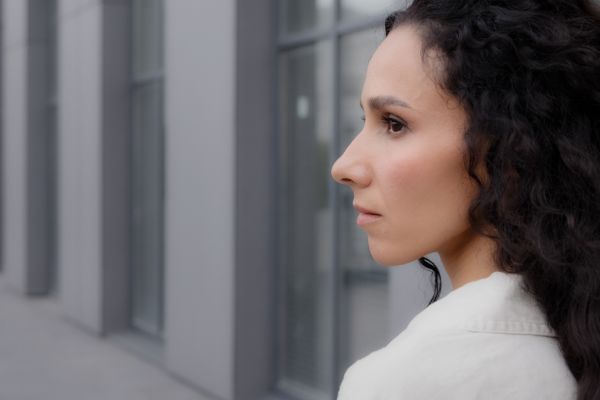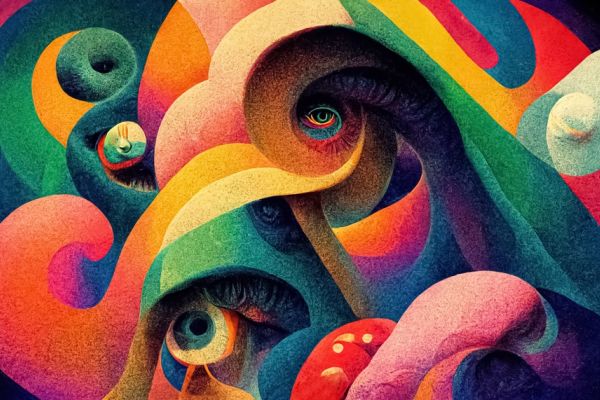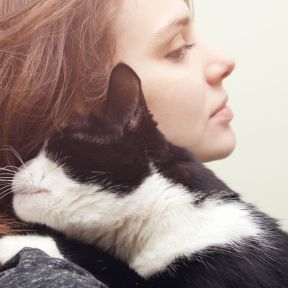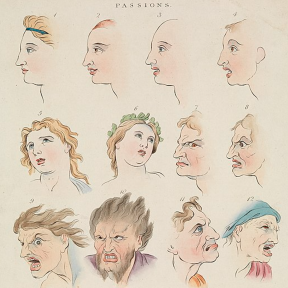
Hallucination
A hallucination involves perceiving sensory stimuli that aren't really present. For example, someone might hear voices that aren’t there, or see patterns that others don’t see.
Hallucinations are a hallmark of schizophrenia spectrum disorders, but they can arise from many different causes, such as medications, illnesses, alcohol or substance use, and sleep deprivation.
Experiencing a hallucination can be scary, confusing, and overwhelming, both for those suffering from the hallucination and for their loved ones. But seeking help and beginning treatment can help alleviate that distress.

Hallucinations are tremendously variable. They can encompass any of the five senses. They can instill deep fear or involve neutral or even positive emotions.
Although experiencing a different reality than other people can be very frightening, doctors and mental health professionals can help identify the root cause and develop a treatment plan.
Hallucinations can occur through any one of the five senses. Auditory hallucinations refer to hearing voices that aren’t there, visual hallucinations refer to sights such as people, objects, or patterns that aren’t there, olfactory hallucinations refer to smelling odors that aren’t there, tactile hallucinations refers to feeling touched by people or animals that aren’t there, and gustatory hallucinations refer to tasting something that isn’t there.
Auditory hallucinations are most common, including for those with schizophrenia. People may hear sounds and voices, which may speak to the person (second-person "you" voices) or about the person (third-person "he” voices).
Voices can be highly distressing, especially if they involve threats or abuse, or if they are loud and incessant. On the other hand, some voices—such as the voices of old acquaintances, dead ancestors, or "guardian angels"—can be a source of comfort and reassurance.
Yes, some people without a psychiatric diagnosis or other discernible cause hallucinate, most often in the form of hearing voices. Around 13 percent of the adult population hears voices at some point in their lives, research suggests; this is much higher than the 0.5 to 1 percent of people who have schizophrenia. A key distinction between those who need mental health care and those who don’t is how much distress the voices cause and how much control the individual has over them.
What makes hallucinations so scary, especially a first hallucination, is that people believe that their experience is reality and sometimes cannot be convinced otherwise. For example, research suggests that around 75 percent of people who have auditory hallucinations lack awareness of those hallucinations. But some people can identify them; that awareness may depend on the type of hallucination and the amount of insight into that hallucination.

Hallucinations can stem from a wide array of underlying conditions, and identifying the root cause is important for developing an effective approach to treatment.
Causes of hallucinations include:
Scientists still don’t understand how hallucinations emerge in psychotic episodes or after taking drugs. With some substances, particularly LSD and psilocybin, research suggests that inhibiting the neurotransmitter serotonin may yield changes that give rise to synesthesia and other atypical sensory experiences.
Yes, scientists are beginning to uncover a few differences between the two. Schizophrenia spectrum disorders most involve auditory hallucinations, while psychedelic-induced psychosis typically involves visual distortions like seeing geometric patterns, research shows.
The primary brain regions and neurotransmitters may also be distinct: Hallucinations in schizophrenia are linked to dopamine signaling and over-activation of associative networks related to the content of the hallucination, while psychedelic hallucinations over-engage sensory areas and are linked to serotonin.
Many people who have bipolar disorder do not experience psychotic symptoms, but delusions or hallucinations sometimes occur during severe manic or depressive episodes. People may see visions or hear voices that aren’t real during periods of mania, characterized by euphoria, energy, distractibility, and grandiosity.
For more, see Bipolar Disorder.
If a person experiences hallucinations only while sleeping, they may not be due to psychosis. Instead, they may reflect a sleep disorder, anxiety, or other cause. In one case, a young woman who struggled with intense anxiety began to see and hear things that weren’t there, often during early morning hours before fully awaking. After a sleep specialist ruled out narcolepsy and other sleep disorders, the woman worked with a therapist to improve her sleep with cognitive behavioral therapy techniques, which led her to stop hallucinating.
Hypnagogic hallucinations, which occur upon falling asleep, are not uncommon and are reported by as much as 37 percent of the population. Hypnagogic hallucinations are more common than hypnopompic ones, which occur upon awakening. Both tend to be visual, but they can also be auditory or tactile. They’re often linked to insomnia, insufficient sleep, and narcolepsy. These sleep-related hallucinations typically resolve with time.
Fever dreams are intense and vivid dreams, often nightmares, that people have when their body temperature is higher than usual. These dreams are more bizarre and more negative than typical dreams, research shows, and the content often includes references to health and body temperature. They may occur because an elevated body temperature leads the brain to “overheat” as well, disrupting typical cognitive processes.

Treatment for hallucinations aims to target the underlying cause. If the hallucinations are due to schizophrenia or another mental health condition, treatment is typically a combination of talk therapy and antipsychotic medication, such as Risperidone, Olanzapine, or Chlorpromazine. Other causes will yield different treatments; hallucinations due to Parkinson’s disease may require an adjustment to one's medication while hallucinations due to sleep problems may involve implementing healthy sleep habits.
If a loved one is hallucinating, stay with them to help keep them safe. Assist them in seeking mental health care, and accompany them to see the doctor.
People often find themselves challenging a loved one's hallucinations, partly out of a desire to relieve their suffering, and partly out of understandable feelings of fear and helplessness. Unfortunately, this can alienate the sufferer when they most need care.
A more constructive approach is to recognize that your loved one’s psychotic symptoms are meaningful to them, while making it clear that you do not personally share in them.
The most important aspect of treating hallucinations is receiving regular mental health care from a professional. But the following steps may help individuals manage and reduce hallucinations themselves:
• Keep a diary of the hallucinations to identify and avoid the situations in which they arise.
• Choose a trusted person with whom to discuss the voices.
• Focus your attention on a distracting activity such as reading, singing, listening to music, gardening, or exercising.
• Challenge the voices and insist that they go away.
• Manage your levels of stress and anxiety.
• Ensure that you are getting enough sleep.
• Avoid alcohol and recreational drugs.
• Take medication as prescribed. If necessary, ask for a review of medication.
Schizophrenia is treated with a combination of antipsychotic medications and therapy. After taking medication, hallucinations tend to subside in a couple of days, but the medication needs around six weeks to be fully effective. It is important to attend to any signs of psychosis (which can include hallucinations) when they are first experienced.
First psychotic episodes (FPEs) need to be addressed in order to alter the course of the schizophrenia, and prevent further acute episodes. Treatment incorporates cognitive behavioral therapy, job assistance, family support, substance use intervention, and lower doses of antipsychotics.
Adhering to a sustainable treatment plan is key to managing symptoms and leading a fulfilling life.
For more, see our Diagnosis Dictionary.














